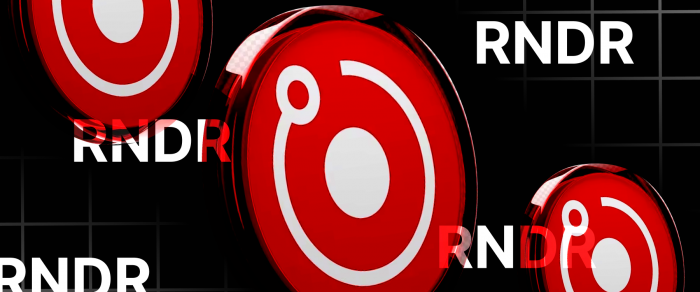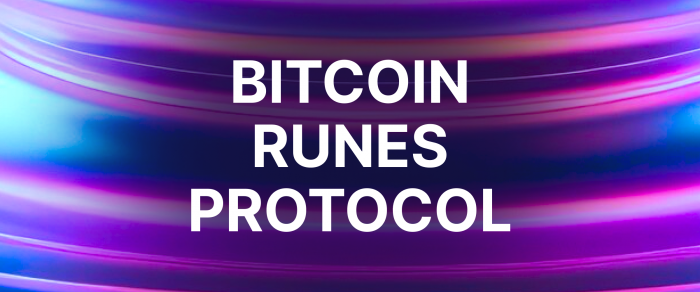How to Mine Bitcoin at Home
Once upon a time, Bitcoin mining was nothing more than a lucrative side hustle for computer nerds interested in cryptocurrencies. At first, a personal computer was all that was needed for hardware. However, things have changed significantly in several years, and those wild times are only a sweet memory now.
Due to the enormous growth of the Bitcoin blockchain, mining operations now fill warehouses full of powerful, purpose-built mining machines to compete for block rewards. However, there still is the opportunity for an average person to make money when mining Bitcoins at home, so let’s dive deep.
Key Takeaways
- Bitcoin miners verify and add transactions to the blockchain and are rewarded with new Bitcoins.
- To mine Bitcoin at home, you must get a mining rig, set up a wallet, download mining software, and join a mining pool.
- High electricity costs, internet connection, climate, and regulations in your country are essential factors to consider before mining.
- The BTC reward per block is reduced periodically, making it harder to earn Bitcoins through mining. Thus, if you want to start mining, the right time is now.
- Bitcoin mining is a complex and resource-intensive process that requires careful planning and investment. It is not a get-rich-quick scheme and requires ongoing maintenance and upgrades to remain profitable.
What Is Bitcoin Mining?
Bitcoin miners use specialized hardware to validate and record blockchain transactions in exchange for newly created Bitcoins. When a user on the Bitcoin network begins a transaction, this transaction is immediately broadcast to the network before being bundled with other transactions into a block.
The next step is for miners to compete to solve a difficult mathematical puzzle to confirm the block and add it to the distributed ledger.
Within a 10-minute time limit, miners should either correctly guess a string of letters and numbers called a hash or come the closest to doing so.
Given that the string contains 64 characters, it is practically impossible for miners to simply guess it off the top of their heads – at least not quickly enough to win. Instead, they rely on automated guesswork from their computers.
There are trillions of possible combinations per target hash. The more powerful your computer, the faster your hash rate is, meaning the greater your chances of success.
If you hit the jackpot, your Bitcoin transactions will be submitted to the community of volunteers for verification. If the majority agrees that your record is correct, it will be added to a growing list of records stored in a distributed ledger called a blockchain.
Currently, the reward for mining a block of transactions is 6.25 Bitcoins; however, this amount is reduced approximately once every four years in a halving event. By 2024, the reward for mining Bitcoins will drop to 3.125 BTC, making 2023 potentially the last year of high profitability for BTC miners.
Steps To Mine Bitcoin At Home
Home-based Bitcoin mining may not be as lucrative as it once was, as the difficulty of the mining process has made reward generation much more complicated. Below are the four basic steps to begin Bitcoin mining at home.
- Get A Mining Rig
The first step to mining Bitcoin from home is choosing the equipment that best suits your needs and finances. While mining Bitcoin from your home PC is possible, the likelihood of success is extremely low, so it would be best if you acquired a Bitcoin-optimized setup. Typical mining hardware includes several GPUs and can rapidly calculate complex mathematical puzzles.
- Set Up A Bitcoin Wallet
Once you set up a mining rig, it’s time to open a Bitcoin wallet to store your mined BTC. If you mine a Bitcoin block successfully, the BTC rewards will be airdropped into your wallet.
- Download A BTC Mining Software
Dedicated mining software is required to operate your mining rig and the wallet. BFGMiner, CGMiner, and EasyMiner are just a few available options you can explore.
- Join A Bitcoin Mining Pool
After installing mining software, you can join a mining pool. Mining pools increase the chance of discovering a block and receiving a reward, as pool miners combine their computing resources and work faster than the solo ones.
Things To Consider Before Mining Bitcoin At Home
Setting up mining equipment and earning passive income without much intervention sounds dreamy. However, rewards do not come immediately, and mining operations are associated with high costs. Here are a few things to consider before starting your mining-from-home experience.
- Cost Of Electricity
Among the many costs associated with mining, the electricity rate is by far the most expensive. Powerful mining rigs require electricity in the kilowatt range, so the average mining machine dramatically impacts the environment.
Bitcoin mining requires constant machine operation at high speeds. If the computational speed is slow and there are power outages, expect Bitcoin production and profits to slow.
The Bitcoin blockchain power consumption is estimated to be about 112.5 terawatt-hours annually, roughly the same amount of energy used by the entire country of Chile.
However, the cost of electricity in some regions can be significantly higher. U.S. electricity costs as little as $12.5 per kilowatt hour, making it an attractive option for Bitcoin miners. On the contrary, countries like Germany and Denmark have electricity rates as high as $37.5 per kWh, making Bitcoin mining prohibitively expensive.
You can lessen your negative effect on the environment and potentially save money in the long run by switching to renewable energy when mining from home. Consider researching solar panels or wind/hydropower availability in your area and how they might supplement your mining operation as an additional energy source.
- High-Speed Internet Connection
Computers that run ASICs or GPUs require constant Internet connections. The quicker your connection, the sooner you can verify transactions and get paid.
Ensure you can get reliable internet at a reasonable price before committing to a mining operation. Unfortunately, not everybody has access to high-speed internet. This can be problematic for rural residents and those who cannot afford the higher costs associated with faster speeds.
Countries such as Estonia, Norway, Switzerland, Finland, and Kuwait have high internet speeds, making them ideal for cryptocurrency miners.
- Mining-Friendly Climates
Overheating is a severe risk in mining because the equipment needed operates 24/7. Therefore, setting up a mining rig in a warm climate means you’ll need to spend more on air coolers to keep the equipment running cool all the time. Meanwhile, a colder climate maintains a low temperature and naturally cools mining technology.
Iceland is known for its abundance of renewable resources, its temperate climate, and its reliance on geothermal power as its primary source of electricity. Therefore, many miners consider it a safe place to start their mining journey.
- Bitcoin Mining Regulations In Your Country
A country’s regulatory factors must also be considered, such as the government’s position on crypto mining or trading. Recently, countries like Iran and China have banned cryptocurrency mining, prompting all miners to relocate to nearby countries with fewer regulations. So, double-check your country’s mining policy to avoid any illegal activities.
Can You Mine Bitcoin On A Smartphone?
We can all agree that mining equipment is expensive, and if possible, we would always try to find affordable alternatives. One such alternative is mining Bitcoin on a smartphone which many consider a lucrative and innovative way to join the mining operations.
However, don’t raise your hopes much, as due to a lack of processing power, it is impractical to mine Bitcoin using a smartphone. Because of the high energy requirements of mining, a smartphone may overheat and malfunction, so besides low rewards, you might also ruin your phone.
Also, Bitcoin mobile mining applications are typically not actual mining but rather a way to earn small amounts of BTC or other cryptocurrencies by completing small tasks or watching advertisements. These apps utilize a phone’s processing power and battery to run the mining operation, but the rewards are extremely low and may not be worth the effort.
The Future Forecast Of Bitcoin Mining
Bitcoin mining’s future is up in the air and subject to change based on several factors.
For one, the profitability of mining can fluctuate widely depending on the value of Bitcoin, which is a major factor.
Additionally, decentralization, the reason why inventing BTC has impressed so many, is getting out of hand. Larger mining corporations control a huge percentage of the network’s hashing power, making the network somewhat centralized.
Bitcoin mining’s energy consumption is another factor worth considering. The more BTC mining difficulty increases, the more power is required for the process. This has prompted worries about mining’s environmental impact, urging some experts to propose regulations and taxes on the industry to encourage less energy use.
It’s also important to note that 2023 is the final year before the Bitcoin halving event, which will reduce block rewards by half.
So, will Bitcoin mining still be profitable in the future? Should we expect it to survive, or will altcoins take their place? And is it worthwhile to purchase expensive mining rigs if the rewards are starting to decrease?
Only time will give us the answers to these questions. Still, before that, one thing is certain: After Bitcoin’s inception, thousands of successful altcoins based on Proof-Of-Work consensus have entered the industry, opening up new opportunities for miners to continue their work.
Also, countries worldwide have taken steps to mitigate the environmental damage caused by mining and started using renewable energy sources.
Thus, mining will likely remain an attractive source of passive income for many, and if you’re still hesitating, it’s time to act now.
FAQs
- Is it possible to mine Bitcoin using a home PC?
Technically, mining Bitcoin using a home PC is possible, but it is not profitable. The mining process requires a significant amount of processing power, and as the Bitcoin network expanded, gaining rewards has also become much more challenging.
- What do you need to mine Bitcoin at home?
If you’re considering starting mining Bitcoin at home, you’ll need to get a Bitcoin wallet, set up a mining rig, install the mining software, and join the mining pool. While solo miners can technically mine from home, it’s practically impossible to gain worthwhile rewards.
- Can a normal person mine Bitcoin?
Anyone can start BTC mining. However, without specialized mining hardware, such as application-specific integrated circuits (ASICs), your chances of successfully claiming rewards are low.
- How much Bitcoin is left to mine?
Out of 21 million BTC supply, 19 million Bitcoins are already mined. This means that once the remaining 2 million BTC is mined, no more will be created, and the BTC blockchain will eventually end.
- Which crypto is easy to mine?
The most accessible crypto to mine might be Monero (XMR), as you can mine it with a standard home computer setup. However, rewards can be pretty low compared to BTC mining.
- How does a Bitcoin miner make money?
Bitcoin miners validate a block of BTC transactions and get a portion of the block reward. Currently, the reward for validating a block is 6.15 BTC. However, note that in 2024, when the BTC halving occurs, the rewards will drop to 3.15 BTC per block.
Final Thoughts
Bitcoin mining has long been an exciting side hustle, but as the network has grown, so has the competition. And especially if you’re a solo miner mining from home, don’t put your hopes too high.
However, if you wish to understand how mining itself works, mining BTC is still a worthwhile opportunity to explore. The era of Bitcoin mining might slowly be drawing to a close, but new competitors are emerging. Therefore, preparing yourself with the knowledge of the process and the necessary technology may help you stay ahead of the competition.



